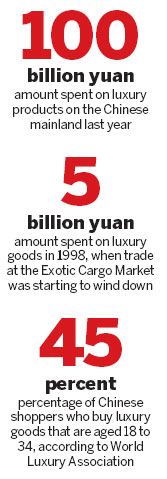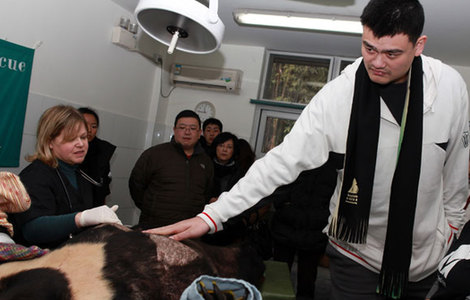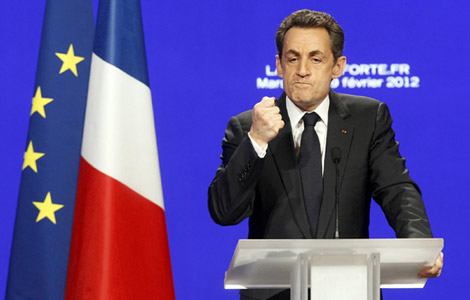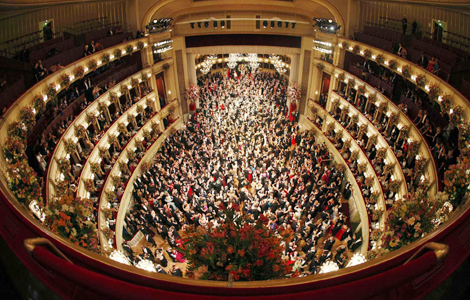Buying luxury items is a brand-new success story
Updated: 2012-02-20 10:22
By Tang Yue (China Daily)
|
|||||||||||

"At first, the production capacity of Chinese firms just couldn't meet demand," explained Niu Haipeng, associate professor of marketing at Renmin University of China. "Customers chose to buy secondhand foreign goods either because there was no equivalent on the domestic market or the quality was different.
"Later, when people found that Chinese manufacturers were capable of offering products with the same quality and at lower prices, they had more options," he said.
Analysis shows that the Chinese appetite for exotic goods never waned, it just changed.
Italian brand Gucci now has about 50 franchises on the Chinese mainland, while Louis Vuitton has 40 and Hermes has 30, said Zhou at the University of International Business and Economics.
Many high-end brands are also branching out into second- and third-tier cities.
Meanwhile, Chinese tourists spent a record $7.2 billion on luxury goods overseas in January, mostly during the Spring Festival holiday, according to a report by the World Luxury Association, a nonprofit organization specializing in market research.
"When people bought foreign goods in the 1980s and 1990s, part of the reason was the exotic taste, but mainly they were buying products for their utility," Niu said. "Twenty years on, however, the main force driving Chinese buyers of high-end brands is the status they represent. It's more about psychological needs."
Luxury desires
Zhu Mingxia, an expert on franchises at the UIBE, said that luxury markets develop in phases: China is still at step one, conspicuous consumption, while the second and third steps are appreciation and enjoyment.
"It's partly because luxury items weren't available in China for a long time," she said. "Also, the 'face' aspect of Asian culture has a lot to do with the boom. It also contributed to the strong desire for brands in Japan, too."
According to the World Luxury Association, Chinese shoppers who buy luxury goods are younger than those in developed nations. Data shows that 45 percent are aged 18 to 34, compared to 37 percent in Japan and just 28 percent in Britain.
"Wealth in China has grown so quickly in the past 30 years," Zhou said. "As a result, the rich are younger and are desperate to prove their social status."
Another factor for the market boom in China is the culture of buying luxury gifts for business associates.
"Foreigners are more rational and buy the things they need," said Ouyang Kun, director of the World Luxury Association's China office. "Yet, the Chinese sometimes buy four or five of the same thing for their family or business partners.
"It is a Chinese characteristic," he added.
Li Xiang and Wang Wen contributed to this story.
Contact the reporter at [email protected]
Hot Topics
Wu Ying, iPad, Jeremy Lin, Valentine's Day, Real Name, Whitney Houston, Syria,Iranian issue, Sanyan tourism, Giving birth in Hong Kong, Cadmium spill, housing policy
Editor's Picks

|

|

|

|

|

|







